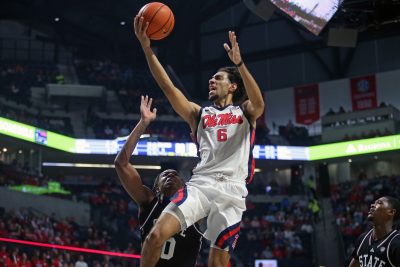
LSU has established itself as a potential national championship contender through the first quarter of the regular season.
The Tigers are ranked No. 3 in the AP Poll, beat preseason No. 4 Clemson on the road and after an unspectacular win over Louisiana Tech, they won their SEC opener against Florida.
The defense shut down Clemson, nearly shut out Tech and intercepted Florida 5 times. It sure looks championship caliber.
But we have a long way to go until the CFP, and the LSU offense has a long way to go to catch up to the defense and become championship caliber.
Time, though, is on the Tigers’ side.
The Tigers get a chance to experiment with ways to jump-start the offense when they face outmanned Southeastern Louisiana on Saturday night in Tiger Stadium before returning to SEC play at Ole Miss on Sept. 27.
Then comes the first of 2 open dates and time for more adjusting.
The first question for head coach Brian Kelly after the 20-10 home victory against Florida last Saturday wasn’t about the 5 interceptions or the second-half shutout or about the overall play of the defense or the 3-0 overall start or the 1-0 start in SEC play.
It was about the offense – as were immediate follow-ups about third-down efficiency (4 of 14) and the running game.
Kelly bristled at the first topic being about shortcomings in a discussion of a significant and just completed victory.
And understandably so.
The offense’s struggles were newsy but down the list of newsiest items relating to Saturday’s outcome. Obviously the offense is on everyone’s mind, not because it has cost LSU a game because it hasn’t – yet – but because it will surely cost the Tigers a game, maybe more than 1, and probably big ones, if it doesn’t get better soon.
By the way, Kelly began his Monday news conference by apologizing to the reporter for his outburst.
But the struggling offense will remain a popular topic until it stops struggling.
Here are 3 keys to unlocking the Tigers’ offense:
1. Run better not just more often
Kelly himself mentioned an emphasis on improving the running game this season after the win against Clemson. It was critical, he suggested, that LSU be more balanced on offense this season and thereby make things less burdensome for star quarterback Garrett Nussmeier to guide a championship-caliber offense.
The increased emphasis is demonstrated by the fact that the Tigers are averaging 30 rushing attempts through 3 games after averaging just 21 last season. But they’re averaging a poor 3.7 yards per carry (compared to 4.1 last season) and 110.7 yards per game (compared to 116.4 last season). Their 2 rushing touchdowns leave them behind schedule to even match last season’s 15.
So running the ball more hasn’t yet produced the desired result, which brings us to …
2. Flip the script
Kelly understandably has wanted to see the Tigers thrive in a quasi traditional run-to-set-up-the-pass approach, though the offense has had a healthy mixture of the 2.
He doesn’t want to voluntarily become overly reliant on the passing game, which was problematic at times last season.
Kelly revealed Monday that Nussmeier has been playing through a “torso” injury since preseason camp, which the coach said limits the quarterback’s practice reps but doesn’t have a significant effect on the throws he can make in games.
At this point Nussmeier and the passing game are more likely to have early-game success than the running game. Kelly admitted as much by calling the pass protection “a strength” while calling the running game one of “the areas that need work.”
So allowing the passing game – and the deep and talented group of receivers who haven’t been consistently as explosive as advertised – to attack early and often could force opposing defenses to focus on the passing game and create personnel deployment more susceptible to rushing plays.
3. Be patient and allow the offense to evolve
Even if the offense has a breakout performance against Southeastern Louisiana, it’s not suddenly going to become the scourge of the SEC.
And that’s OK.
Kelly clearly recognizes that the 2025 LSU defense is the strength of the team and not the liability that the 2024 LSU defense was.
“This year, I’m playing it a little bit differently based upon the strength of our defense,” he said. “Last year we needed to score more points. Now, as we move forward, we’re going to need to do both.”
The defense affords Kelly and offensive coordinator Joe Sloan the luxury of being realistic in what the offense can do in September while developing it into what he needs to be in December and perhaps even January.







